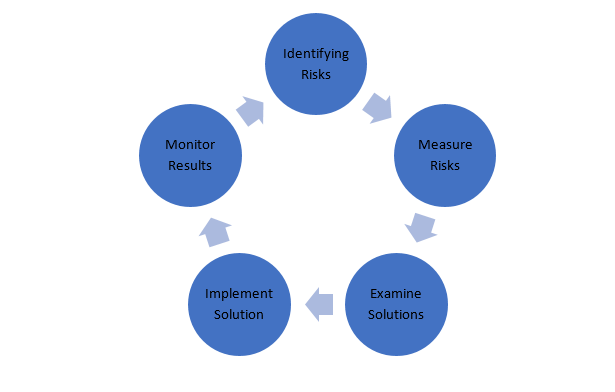
 Data Structure
Data Structure Networking
Networking RDBMS
RDBMS Operating System
Operating System Java
Java MS Excel
MS Excel iOS
iOS HTML
HTML CSS
CSS Android
Android Python
Python C Programming
C Programming C++
C++ C#
C# MongoDB
MongoDB MySQL
MySQL Javascript
Javascript PHP
PHP
- Selected Reading
- UPSC IAS Exams Notes
- Developer's Best Practices
- Questions and Answers
- Effective Resume Writing
- HR Interview Questions
- Computer Glossary
- Who is Who
Top Topics to Success in PMP Exam
The Project Management Professional certification is recognized globally. This certification tests a candidate's ability to manage projects, which includes the human resources involved, the processes during the implementation stage, and the business priorities of a project. It proves the ability of a candidate to manage different projects across industries.
Tips for Success in the PMP Exam
The PMP Exam has 200 questions. Out of 200, 25 of those questions are not marked, and out of the 175 marked questions, you must get 141 of them right to succeed in the exam. The PMP exam is categorically divided into five parts ?
- Initiating
- Planning
- Executing
- Monitoring and controlling
- Closing
Please keep the PMKOB guidebook handy. This is the official guide issued and edited by the institute. Along with this, give mock exams for the exams as frequently as possible.
Crucial Topics for the PMP Examination
An overview of different topics that can be helpful for you during the examination is as follows ?
Project Human Capital Management
This area of the project deals with the most crucial capital of an organization, i.e., the people involved. It starts with identifying ?
- The number of human resources needed.
- Type of human resources needed.
- Documenting and finding the required soft and hard skills of the different human resources needed.
- development of the human resources involved.
- Resourceful allocation and utilization of the human resources involved in the different stages of project implementation.
Project Communication Management
Communication management is a crucial part of the PMP examination. The first step in communication management is to identify the different stakeholders involved in the project and the mode of communication that would be used to distribute the information to the different stakeholders. It also involves identifying the different expectations of the stakeholders involved in the project and reporting the performance of the project implementation and employees' performance to the concerned stakeholders.
Project Risk Cycle Management

Identifying the different risks involved in the project through historical data or judgment-based analysis.
Measuring the different risks involved through various qualitative and quantitative measures.
Examining the different solutions for all the relevant risks. This process is done to find the best feasible solution for the different kinds of risk involved in the project. It means examining the solution in terms of financial cost, time involved, human resources involved, and other parameters.
After the best solution is examined, our next step is to implement it.
Continuous monitoring of the solution and its side effects is important, along with the other risks that might arise because of the different external and internal parameters.
Project Cost Management
In the above stages, we have discussed all that is needed for the project to kick off and run smoothly, but these resources come at a cost. In this stage of the PMP course, you have to understand how to evaluate the cost, the different types of budgets that could be prepared through historical data or future analysis, and what areas of cost-cutting can be done by the organization. Cost affects the revenue and profit from the project. In this area, preparing cost sheets and various budgets and understanding different financial statements can really come in handy.
Project Time Management
Every project comes with a deadline, and this deadline determines the scale of revenue for an organization. Allocating individuals as needed, tracking their performance and billable hours, creating invoices regarding the same, meeting the official deadline, and justifying the time charged to the client are just some of the factors that need to be considered in project time management. You can better understand these concepts if you can get hands-on experience with the top time management tools used by the company, and some of them are,
- Scoro
- Active Collab
- Proof Hub
Project Scope Management
Scope management includes the entire work requirements that are necessary to kick start the process and then deliver excellent quality products to clients in the end. It starts by identifying and documenting all that is needed to get the project done and then delves deeper into the features of the products that are needed to get the work done.
Project Quality Management
The quality of the product or service delivered by the project team and its members is of utmost importance. In this exercise, you will come across various quality management tools.
Some of the quality management tools could be
- cause and effect diagram
- Tally sheet or check sheet
- control chart and others
The delivery of the product also determines the customer experience and whether they will become "regular customers."
Project Integration Management
Project integration management, in simple terms, means coordination. Every stage of a project includes planning, organizing, procuring, implementing, reviewing, and documenting. These stages need coordination. Internal coordination is related to the input and output at every stage, while external coordination is between the different stages of project implementation.
Project Procurement Management
Procurement as a process deals with identifying, evaluating, maintaining, and controlling the different resources and their formal contractual agreements?all that a project needs to fly high. It also involves maintaining the existing formal relationships that the organization has. It is known as the source-to-settle process.
Individual Professional and Project Social Responsibility Management
This area of project management deals with the ethical issues involved in the project as well as the personal ethics of an individual. An excellent project manager needs to be integral, responsive, and fair, i.e., free from personal bias, disciplined, and honest. It involves understanding the social cost of the project and the various actions the company can take to be socially responsible or contribute towards community development.
The PMP exam is not an easy one to crack, but it is possible when you have understood the theoretical knowledge as well as the practical implementation of the same. Along with this, it is a lengthy paper of 230 minutes, so before sitting for the test, ensure that you are mentally prepared for the long hours and the logical questions.
Give your best, and the best will happen for you!

